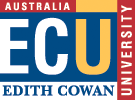COURSE INFORMATION
Disclaimer
This course information may be updated and amended immediately prior to semester. To ensure you have the correct outline, please check it again at the beginning of semester.
| G04 Bachelor of Science (Aviation) | ||
The Faculty of Computing, Health and Science offers a general Bachelor of Science with a wide range of discipline concentrations and a number of more specialised Bachelor of Science courses providing specifically identified major studies.
Requirements for each of the specific awards offered in the School of Engineering and Mathematics are detailed below.
The more flexible award is described earlier in the Handbook.
INTRODUCTION This is a three year full-time (or part-time equivalent) program leading to a Bachelor of Science degree.
The Bachelor of Science (Aviation) is designed to provide a broad professional education and graduate status for pilots. The course includes essential theoretical and practical elements required for pilot training. It extends beyond licensing requirements and traditional pilot training to prepare graduates for a range of careers within the aviation industry.
The Bachelor of Science (Aviation) has been developed in close consultation with the aviation industry. Core theoretical units in aviation are taught by the Faculty of Computing, Health and Science. Practical flying training is carried out in association with authorised flying schools.
On graduation, students who have completed all the flying units will hold a Commercial Pilot Licence together with either a Command Instrument Rating in a twin-engine or turbine-powered aircraft, or a Flight Instructor Rating. In addition, they will have completed studies in the theoretical component of an Air Transport Pilot Licence.
Note: Students can complete the Bachelor of Science (Aviation) without undertaking any of the practical flying training units. However, the University does not recommend this course of action as all the aviation theoretical units are designed to provide specialist knowledge for a pilot and will be of questionable value to any graduate who does not also hold a flying qualification.
COURSE LOCATION AND MODE OF STUDY The Bachelor of Science (Aviation) is offered through the School of Engineering and Mathematics on Mount Lawley campus. Flying units are undertaken at Jandakot Airport or other appropriate locations. The course is offered in the full-time and part-time modes but part-time students will be required to attend day classes. In addition selected units are available for external study.
SPECIAL ADMISSION REQUIREMENTS Prior to enrolling in the Bachelor of Science (Aviation) degree program, applicants are strongly advised to undergo an aviation medical examination by a doctor authorised to conduct such examinations by the Civil Aviation Safety Authority.
In addition, applicants must have attained a satisfactory performance in a TER mathematics unit or the equivalent. Studies in Physics and Aeronautics are desirable but not essential.
Entry to the Bachelor of Science (Aviation) degree programme is available to applicants who hold Australian Commercial or Air Transport Pilot Licences or who are pilots in the military. Such applicants may also expect to receive credits for a number or units in the B Sc (Aviation) degree.
FEES Fees apply to all units in this degree except for the three Flying Training units. However, any costs of flying training must be borne by the student. Although these costs cannot be precisely determined, it should be anticipated that they would be in the order of $40,000 if all three Flight Training units were completed.
COURSE STRUCTURE The Bachelor of Science (Aviation) is divided into the following four areas taken over three years of full-time study:
a twelve unit Major in aviation a six unit Minor in a selected area three Elective units three Practicum units
|
||
| Disability Standards for Education (Commonwealth 2005) | ||
| For the purposes of considering a request for Reasonable Adjustments under the Disability Standards for Education (Commonwealth 2005), inherent requirements for this subject are articulated in the Unit Description, Learning Outcomes, Graduate Attributes and Assessment Requirements of this entry. The University is dedicated to provide support to those with special requirements. Further details on the support for students with disabilities or medical conditions can be found at the Student Equity, Diversity and Disability Service website: | ||
| http://intranet.ecu.edu.au/student/support/student-equity | ||
Last Updated - Higher Education: 11/18/2004
